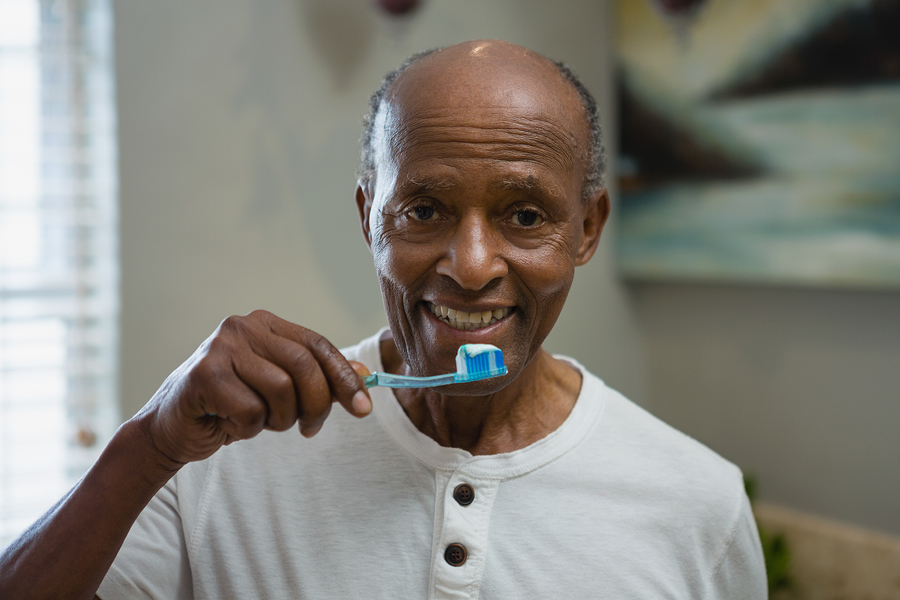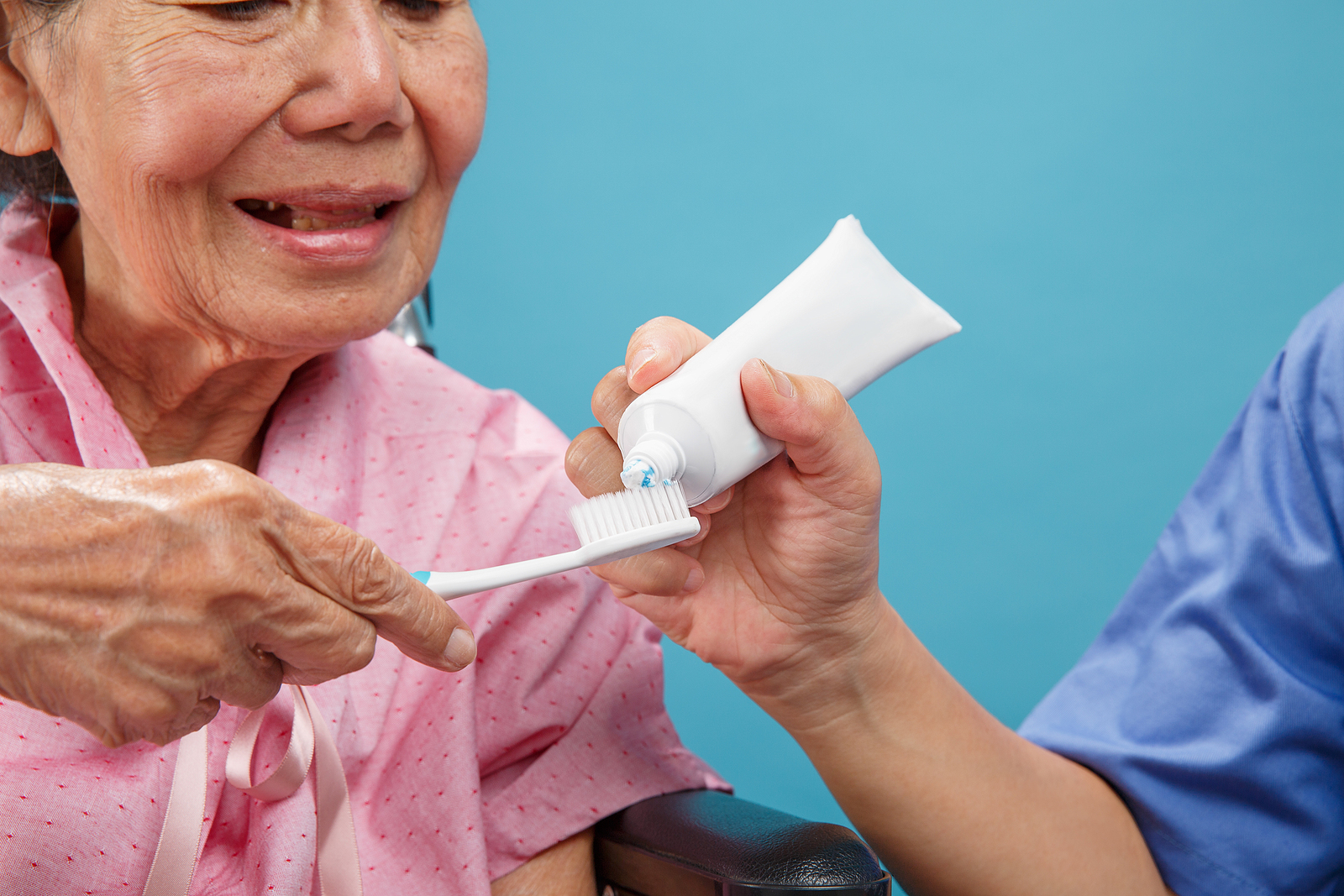Oral Health Problems that Plague Seniors
Category:

Many older adults stop taking good care of their teeth and mouth as they get older. They may not have the financial resources to pay for good oral care or they may lack the ability to get to the dentist or doctor for issues that affect their mouth. They may even write them off as not something that should be worried about since it’s just in their mouth.
Luckily, your aging parent has you and others to care for him and make sure his oral care is maintained. Even if he’s not having any current issues, regular, preventative care is important. Your senior care provider can assist in bringing him to and from appointments and can even help at home by cleaning his dentures or partials or helping with brushing and flossing.
If regular care isn’t taken, there can be some unpleasant consequences. The top oral health problems that plague seniors today are:
- Untreated tooth decay. Tooth decay can lead to painful cavities and eventual tooth loss.
- Gum Disease. Gum disease is caused by plaque and can be made worse by food left in the teeth, tobacco use, ill-fitted dentures, and some diseases like diabetes or anemia. Almost 2 out of 3 older adults have gum disease. Since gum disease often exposes the roots of teeth, it can easily lead to tooth loss in older people. Having your senior care provider help your parent floss with each brushing can go a long way in reducing your parent’s gum disease chances.
- Uneven jawbone. If your parent has lost some teeth but has never replaced them with a bridge or other form of artificial teeth, the remaining teeth may begin to shift and become uneven, creating an uneven jawbone that may make eating difficult.
- Tooth loss. Missing teeth can cause your parent to miss out on eating healthy foods such as fresh fruit and vegetables because of the inability to bite or chew. It’s estimated that one in five adults older than 65 years old have lost all of their teeth and even those that have replaced their teeth with dentures may still have problems eating properly due to pain or discomfort. Have your parent visit his dentist for regular denture check ups if he wears them and have your senior care provider help with cleaning and storing his dentures when your parent isn’t wearing them.
- Oral cancer. Cancer of the mouth can occur to people after the age of 60. If your parent develops any sores or lumps in his mouth, schedule an appointment with his doctor right away.
- Denture-induced stomatitis. Poorly fitting dentures, bad dental hygiene, or a buildup of the fungus Candida albicans can cause this condition, which is inflammation of the tissue under your parent’s denture. This can lead to a condition called
- Thrush. An antibiotic can help eliminate the inflammation, but your parent will need to visit a doctor first.
- Darkened teeth. Caused by a lifetime of drinking and eating items that stain the teeth, along with the dentin of the teeth becoming weakened, many seniors can end up having darkened teeth. It may be simple discoloration, or it could be the symptom to something more serious so it should be brought to your parent’s physician’s attention.
The mouth can signal a lot about how a person’s overall health is so it’s important to help your parent stay on top of his oral health.
Source: https://www.cdc.gov/oralhealth/basics/adult-oral-health/adult_older.htm
Subscribe
Date: February 5, 2021
Category:
